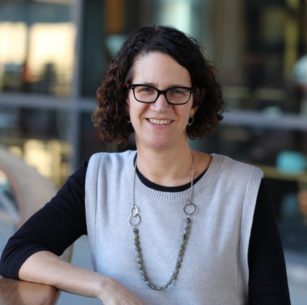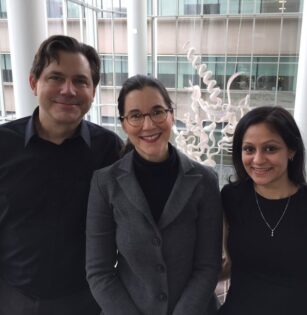GRANTS AWARDED
Karlene Cimprich, Ph.D.
Stanford Cancer Institute
Stanford, CA
BRCA 1/2 Mutation Associated R-Loops: Roles in Genomic Instability and Biomarker Development
Funded by 2017 BRCA Fund-A-Need
To improve cancer detection and treatment for women with BRCA1 or BRCA 2 mutations, Cimprich and her team examine how certain mutations may cause DNA to break. Having discovered that tangled clumps of RNA and DNA, known as R-loops, can break a DNA strand, the team is exploring how R-loops break and whether they could serve as a sensitive marker for early cancer detection.
Judy Garber, M.D., MPH
Co-PI: Myles Brown, M.D.
Dana-Farber Cancer Institute
Boston, MA
Development of Effective Hormonal Chemoprevention for BRCA 2 Carriers
Funded by 2017 BRCA Fund-A-Need
When women with a BRCA2 mutation have their ovaries removed – typically as a preventative measure due to their high risk of ovarian cancer – they often develop menopause symptoms. However, conventional hormone replacement menopause therapies may increase the risk of breast cancer. This exciting clinical trial is evaluating whether a new combination therapy could offer these women relief from menopause symptoms while helping to protect them against breast cancer.
Roger Greenberg, M.D., Ph.D
University of Pennsylvania
Philadelphia, PA
Understanding and Exploiting the Heterogeneity of Cell Intrinsic and Extrinsic Responses to DNA Damage in BRCA mutant Cancers
Funded by 2017 BRCA Fund-A-Need
Cancers that are related to BRCA mutations often become resistant to available medications. To overcome this problem, Greenberg’s team is taking a new approach – taking advantage of the body’s natural inflammatory and immune responses to target drug-resistant cancer cells – in hopes of developing a better cure for BRCA related cancers.
Tony Huang, Ph.D.
Co-PIs: Eli Rothenberg, Ph.D. (NYU), Douglas Levine, M.D. (NYU), and Ryan Jensen, Ph.D. (Yale)
New York University School of Medicine
New York, NY
Elucidating the Replication Fork Protection Problem Caused by PARP inhibitors in BRCA2-mutated Ovarian Cancers
Funded by 2017 BRCA Fund-A-Need
Drugs known as PARP inhibitors have made a huge difference for many patients with ovarian cancer who have BRCA2 mutations, but they don’t work for everyone. To inform clinical decision making and identify potential new treatments, this research project aims to uncover how PARP inhibitors interact with ovarian tumors and why some BRCA related cancers become resistant to them.
Fiona Simpkins, M.D.
University of Pennsylvania
Philadelphia, PA
Novel PARP and ATR inhibitor combination therapies for BRCA-mutant ovarian cancer
Funded by 2017 BRCA Fund-A-Need
In a new clinical trial, Simpkins and her team are testing a combination therapy designed to improve the effectiveness of PARP inhibitors in women with BRCA related ovarian cancer. With V Foundation funding, the team is working to identify ways to predict which patients are likely to benefit most from the new therapy and to further refine the drug combination to create the most effective and well-tolerated treatment possible.





